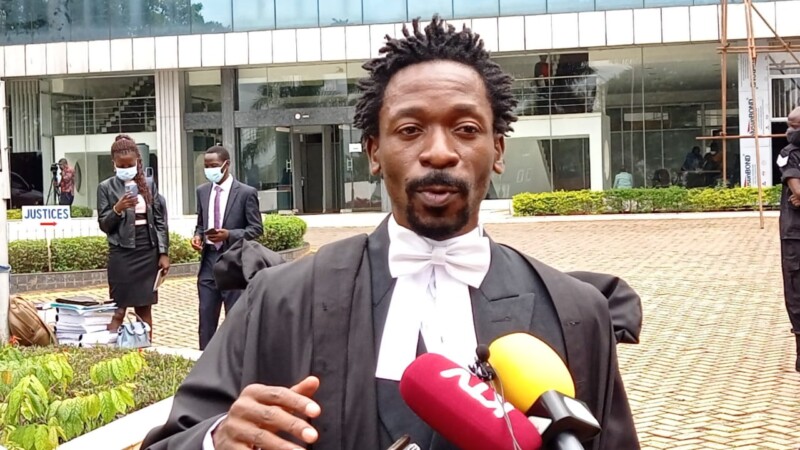By Isaac Ssemakadde
Kampala, (UG):- While congratulating President Biden last week on the occasion of appointing the 200th federal judge, the majority being women and people of colour, President Obama said: “Judges have the power to roll back progress or keep us moving forward; to protect our basic liberties or take them away.”
In recent times, Ugandan magistrates and High Court judges have dubiously denied bail to perfectly eligible suspects in so-called sensitive and high-profile cases, clearly out of fear, even though a case on the merits had been made out.
For instance, the 27-year-old TikTok prankster Ibrahim Musana a.k.a. @Pressure24.7 who was unreasonably deprived of six months of freedom and productivity merely for his “unpopular” content about certain public figures; and Muhammad Ssegirinya, 36, and Allan Ssewanyana, 37, who were jointly robbed of nearly two years out of their five-year legislative mandate just for being suspects in the Masaka terrorism case.
On Tuesday, May 21, 2024, Kampala-based businesswoman Molly Katanga, 55, who is accused of mariticide, became the latest victim of pretrial abuse of judicial power when High Court Judge Isaac Muwata denied her request for bail for the second time in two months.
Her custody in Uganda’s notoriously overcrowded prisons is certainly not needed. She is entitled to the presumption of innocence, and court found her sureties to be substantial. She demonstrated that she has a home, a spotless criminal history, and strong ties to her relatives and the community where she lives and works. The prosecutor did not dispute this.
Evidently, the interests of justice required the court to set special conditions that would allow Ms Katanga to remain in her home and community while addressing any valid public safety concerns, instead of passing a detention order in a routine and mechanical way.
However, she has been prematurely treated as a convict who must be detained until she is acquitted because the court strictly applied an Idi Amin-era rule for denying bail to a suspect who is neither of advanced age (or infancy), nor diagnosed by a prison doctor with a grave illness beyond prison medical capabilities, nor the recipient of a certificate of no-objection issued by the Director of Public Prosecutions (DPP).
This 53-year-old draconian rule has embarrassingly escaped national scrutiny, hence our decision to drag it to the Arusha-based East African Court of Justice for regional scrutiny and permanently put it out of use. The forum choice is informed by the adage: “Maize cannot get justice in a chicken’s court.”
IMPUNITY AND MISCARRIAGE OF JUSTICE
It is now settled law that denying bail solely based on arbitrary and capricious factors such as the accused person’s age, or a medical condition that could be treated in prison, or a no-objection chit by the DPP, is an unjustified restriction on liberty, violating Article 23(6)(a) of the Ugandan Constitution (right to bail) and Article 28(3)(a) (presumption of innocence).
It also violates international human rights law, particularly Article 9(3) of the International Covenant on Civil and Political Rights, which provides that “It shall not be the general rule that persons awaiting trial shall be detained in custody…”
In Molly Katanga’s case, the High Court judge blatantly committed two other cardinal errors. First, by fetishising the July 2, 2024 hearing date for Molly Katanga’s main case, Judge Muwata disregarded a pertinent decision of the Constitutional court in Hon Sam Kuteesa & 2 others v Attorney General, Reference No 54 of 2011.
In that case, three cabinet ministers accused of graft during the CHOGM 2007 bonanza successfully challenged another Amin-era rule by which bail was automatically cancelled once a suspect was informed of the date for commencement of their trial in the High Court.
Secondly, by disregarding Molly Katanga’s sureties who “appeared substantial” and other rules of setting bail conditions to address public safety concerns while protecting a suspect’s fundamental rights, Judge Muwata ignored another decision of the Constitutional Court in Uganda (DPP) v Col (Rtd) Dr Kizza Besigye, Reference No 20 of 2005.
This landmark case introduced the concept of weighing and balancing competing interests in a bail application. You simply do not favour one side, and disappoint the other!
The Besigye decision was a watershed for our right to liberty. It exhorts lower courts to be liberal in granting bail when custody is not needed to prevent the suspect fleeing the jurisdiction or interfering with witnesses, or for any other valid public safety reason.
Unfortunately, Judge Muwata’s erroneous decision is final and potentially precedent-setting as the law does not provide a right of appeal from bail-related decisions of the High court. Perhaps that explains the ingrained impunity and dismissive tone with which he shut out Ms Katanga and her sureties.
In addition, these Amin-era ‘ghosts’ in our bail law are a common hiccup for all court users. They present a morass of confusing and contradictory policies and practices, often resulting in cases of miscarriage of justice epitomized by Ugandan courts denying bail when custody is not demonstrably needed.
The ghosts have exacerbated the scourge of prison congestion, prison morbidity and prison mortality, as well as the ubiquitous problems of case backlog and recurrent perceptions of frightening levels of judicial corruption causing loss of public trust in the judiciary.
A RADICAL SOLUTION
Everyone is potentially a suspect and hence a victim of Uganda’s police-to-prison pipeline which has hitherto claimed an unacceptably high number of eligible applicants whose pleas for bail fell on deaf ears. Let Molly Katanga’s case be the last reminder of the perils of our collective silence and cynicism, and why it is so important to take “radical action to judge the judges.”
To put a stop to the tyranny of judges and ghosts in our individual paths to bail and guarantee non-repetition, we sued the Uganda Government at the East African Court of Justice this week on Monday, May 27, 2024, alleging a breach of the principles of good governance enshrined in Articles 6(d) and 7(2) of the Treaty for Establishment of the East African Community, in reference to the Molly Katanga no-bail decision.
We seek, among others, a declaration that Ugandan police and security operatives, prosecutors and judicial officers must demonstrate a “compelling reason” to deny bail, and that the reasons given in the Katanga case are insufficient to justify denial of bail.
To be clear, this is no longer about the Katanga widow. It is about good governance for our fellow citizens, our family members and our friends, at their hour of need.
We are taking a stand, in the public interest, to condemn and reject the tyranny of Uganda’s cowardly and corrupt prosecutors and judicial officers. Enough is enough!
The author is the CEO of Legal Brains Trust, a Kampala-based democracy and human rights watchdog
Do you have a story or an opinion to share? Email us on: dailyexpressug@gmail.com Or follow the Daily Express on X Platform or WhatsApp for the latest updates.



